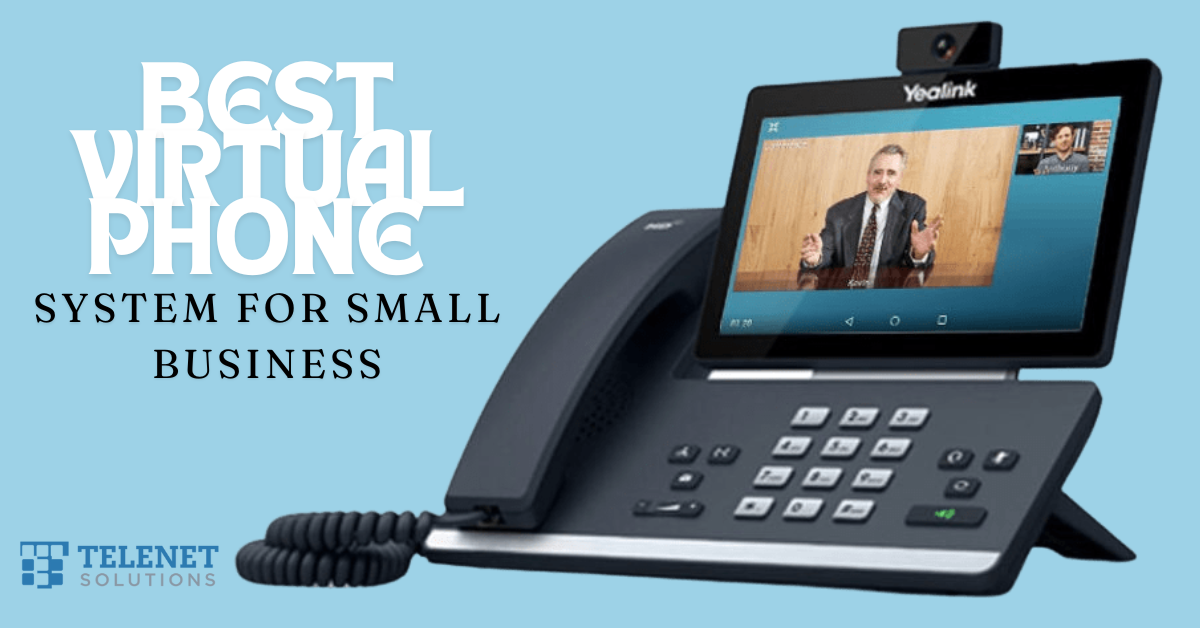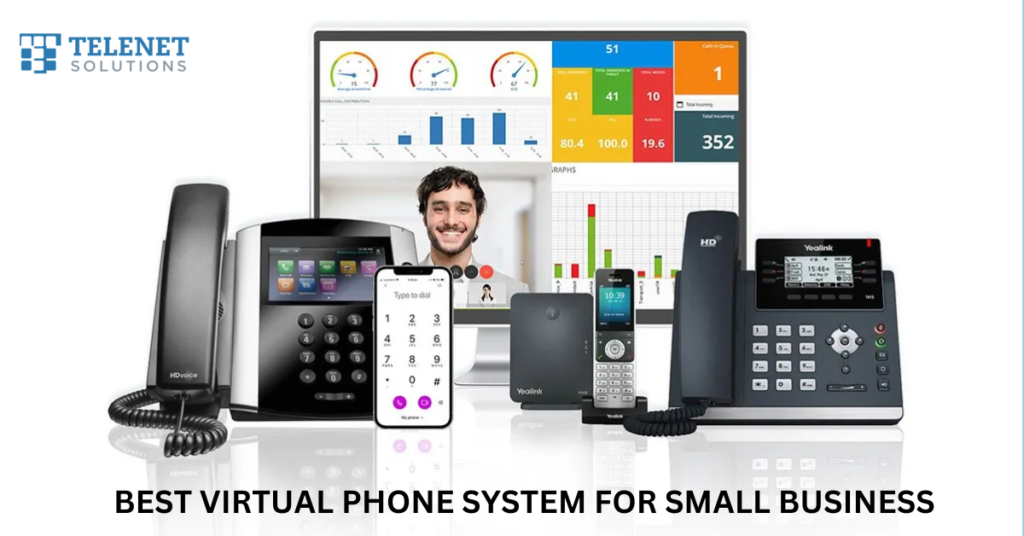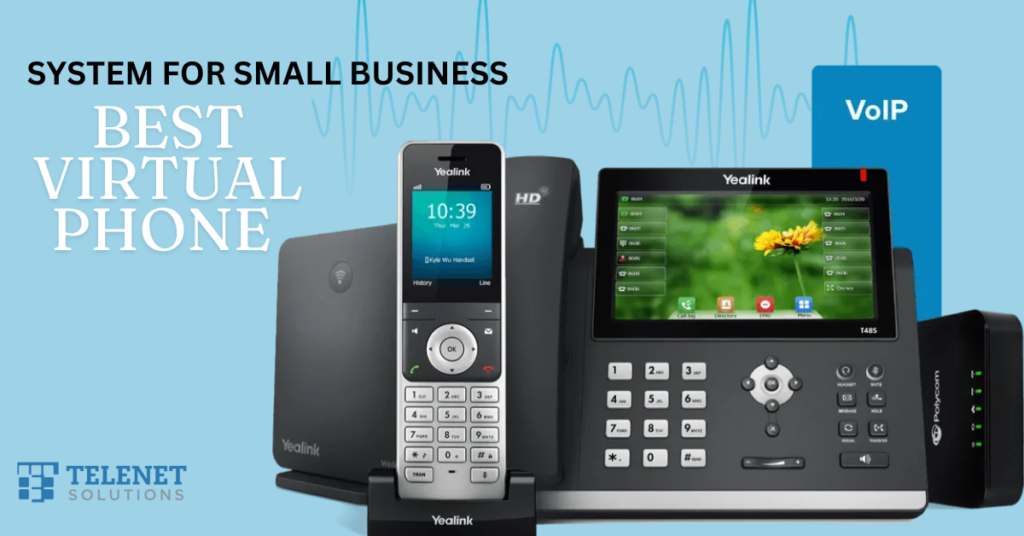As Best virtual phone system for small business continue to evolve in a competitive landscape, having an efficient communication system is essential. In 2024, the best virtual phone systems are designed to meet the unique needs of small business owners, providing flexibility, affordability, and advanced features. This article will explore what a virtual phone system is, its benefits, how to choose the best service, top picks for the year, and how to set up such a system effectively.
What is a Virtual Phone System for Small Businesses?
Understanding the Basics of a Virtual Phone
A virtual phone system is a cloud-based communication solution that allows small businesses to manage their phone calls without relying on traditional landlines. This innovative system utilizes Voice over Internet Protocol (VoIP) technology to facilitate calls via the internet, making it an essential tool for modern business communication. With a virtual phone service, small business owners can have multiple phone numbers, including local and toll-free numbers, without the need for physical hardware. This flexibility allows businesses to project a professional image while maintaining cost-effectiveness.
How Does a Virtual Phone System Work?
At its core, a virtual phone system operates by routing calls through the internet instead of traditional phone lines. When a call is initiated, the VoIP phone system converts the voice signal into digital data, which is then transmitted over the internet to the recipient. This process allows for features like call forwarding, voicemail transcription, and automated attendants, all of which can be accessed through a mobile app or desk phone. Additionally, cloud phone systems provide scalability, enabling businesses to add or remove phone lines as their needs change without incurring significant costs.
Key Features of Virtual Phone Systems
One of the defining aspects of a virtual phone system for small businesses is its array of features designed to enhance business communication. Key features often include call forwarding, allowing calls to be redirected to any phone; voicemail-to-email, which sends voicemail messages directly to email accounts; and conference calling capabilities for team collaboration. Furthermore, many providers offer mobile apps, enabling business owners and employees to manage their virtual phone numbers on the go. These features are crucial for small teams looking to streamline their communication processes and maintain a professional presence.
What are the Benefits of a Virtual Phone System for Small Businesses?
Cost-Effectiveness of VoIP Phone Systems
One of the primary advantages of using a virtual phone system is its cost-effectiveness. Traditional phone services often come with high installation costs and ongoing fees. In contrast, VoIP solutions typically offer subscription-based pricing, which can be significantly lower than conventional phone service providers. This affordability makes it an attractive option for small business phone systems, allowing owners to allocate resources to other critical areas of their operations. Additionally, features that would typically incur extra costs with traditional systems are often included in VoIP packages, further enhancing their value.
Improved Business Communication
Virtual phone systems greatly enhance business communication by providing tools that facilitate better interaction among team members and with clients. The ability to use a virtual number ensures that calls can be routed to the appropriate person, reducing missed opportunities. Features such as call screening and analytics enable business owners to monitor call performance and adapt their strategies accordingly. Enhanced communication not only improves customer satisfaction but also fosters a collaborative work environment where small teams can thrive.
Flexibility with Mobile Apps and Desk Phones
The flexibility offered by virtual phone systems is another significant benefit for small businesses. With the rise of remote work, having a reliable phone service that can be accessed from anywhere is crucial. Virtual phone service providers typically offer mobile apps that allow users to make and receive calls using their business numbers from their mobile devices. This capability means that business owners and employees can maintain connectivity without being tied to a desk phone. Whether in the office or working remotely, staff can stay in touch with clients and colleagues seamlessly.
How to Choose the Best Virtual Phone Service for Your Small Business?
Factors to Consider When Selecting a Phone System
Choosing the right virtual phone system for a small business requires careful consideration of several factors. First, assess the specific business needs, such as the number of users and the required features. Different providers offer varying levels of functionality, from basic calling features to advanced options like video conferencing and team messaging. Additionally, consider the ease of use and customer support options provided by the service provider. A system that is user-friendly and backed by excellent support can make a significant difference in the implementation and ongoing usage of the phone service.
Top VoIP Providers for Small Teams
When selecting a virtual phone service, it’s essential to evaluate the top VoIP providers that cater specifically to small teams. Some of the best virtual phone systems in 2024 include well-known names like RingCentral, Grasshopper, and 8×8. Each of these providers offers unique features tailored to the needs of small businesses, such as unlimited calling, voicemail transcription, and integration with popular business tools. Comparing these options will help business owners find the best fit for their communication needs.
Comparing Features of Business Phone Services
To make an informed decision, comparing the features of different business phone services is crucial. Look for a system that offers essential functionalities like call forwarding, voicemail, and conferencing, but also consider additional features that can enhance productivity. Some virtual phone systems include advanced analytics, CRM integration, and customizable greetings, which can significantly benefit small business operations. By weighing the available features against costs, business owners can select a phone solution that maximizes value and efficiency.
What are the Top Picks for Virtual Phone Systems in 2024?
Best VoIP Phone Systems for Small Businesses
As we look at the best VoIP phone systems for small businesses in 2024, several contenders stand out. RingCentral continues to be a leader in the virtual phone system market, offering comprehensive features, excellent scalability, and a user-friendly interface. Similarly, Nextiva has gained popularity for its robust customer support and extensive functionality, making it an ideal choice for small business phone systems. Each of these options provides unique advantages tailored to the needs of small teams, ensuring effective communication and collaboration.
Leading Virtual Phone Service Providers
In addition to RingCentral and Nextiva, other leading virtual phone service providers include Ooma and Vonage. Ooma is known for its affordable pricing plans and reliable call quality, making it a great choice for budget-conscious small business owners. Vonage, on the other hand, offers a versatile phone system with a wide range of integrations, appealing to businesses that rely heavily on various software tools. Evaluating these providers will help small business owners identify the best virtual phone service for their specific requirements.
Comparative Analysis of Phone Solutions
A comparative analysis of phone solutions is essential for small business owners to understand the strengths and weaknesses of each system. Factors such as pricing, features, and customer support should be meticulously evaluated. Additionally, consider user reviews and testimonials to gauge overall satisfaction with each provider. By conducting a thorough analysis, business owners can make a well-informed decision that aligns with their operational goals and communication needs.
How to Set Up a Virtual Phone System for Your Small Business?
Step-by-Step Guide to Implementation
Setting up a virtual phone system for a small business involves several straightforward steps. First, business owners should choose a reliable service provider that meets their needs. After selecting a plan, the next step is to set up the account and configure the phone system features, including virtual numbers and voicemail settings. Most providers offer user-friendly interfaces that guide users through the setup process. Once the system is configured, staff can download the mobile app and start using their new virtual phone numbers to enhance business communication.
Common Challenges and Solutions
While implementing a virtual phone system can be beneficial, small business owners may encounter common challenges. One such issue is ensuring that internet connectivity is stable enough to support VoIP calls. To address this, businesses should invest in a reliable internet connection and consider using Quality of Service (QoS) settings on their routers to prioritize voice traffic. Another challenge is the learning curve associated with new technology. Providing training sessions for employees can alleviate confusion and ensure a smooth transition to the new system.
Ensuring Seamless Integration with Existing Tools
To maximize the benefits of a virtual phone system, it’s crucial to ensure seamless integration with existing tools and applications used by the business. Many virtual phone service providers offer integrations with popular platforms like CRM software, email services, and project management tools. Ensuring that the phone system can communicate with these tools will streamline workflows and improve overall efficiency. Small business owners should explore the integration options available with their chosen provider to create a cohesive communication strategy that supports their business needs.
What is the best virtual phone system for small businesses in 2024?
In 2024, some of the top picks for the best virtual phone system include RingCentral, Grasshopper, and Nextiva. Each offers unique features to help your business thrive, so it’s best to compare them to find which one suits your needs.
How do I choose a virtual phone service for my business?
To choose a virtual phone service, consider your specific needs, such as the number of users, required features, and budget. Also, look for providers that offer a good mix of business phone system features like call forwarding, virtual receptionists, and mobile compatibility.
What are the benefits of a VoIP phone service?
The benefits of a VoIP phone service include cost savings, scalability, flexibility for remote work, and advanced features like video conferencing and integration with other business tools. It’s a great solution for small businesses looking to enhance communication.
Can I get a local phone number with a virtual phone system?
Yes! Many virtual phone system providers allow you to choose a local number. This can help your business establish a local presence and make it easier for customers to reach you.
What features should I look for in a virtual business phone system?
When looking for a virtual business phone system, consider features like call routing, voicemail-to-email, conference calling, and mobile app access. These features can significantly enhance your business calling experience.
How does a virtual phone number work?
A virtual phone number works by routing calls through the internet, allowing you to receive calls on various devices without being tied to a physical office. This is perfect for remote teams or businesses that need flexibility.
Do virtual phone systems provide a virtual receptionist service?
Absolutely! Many virtual phone service providers offer virtual receptionist services, which can help manage calls and direct them to the right team members, improving customer service without the cost of hiring additional staff.
Is a virtual business phone system better than a traditional phone system?
Yes, for most small businesses, a virtual business phone system is better than a traditional phone system. It offers more features, lower costs, and flexibility that can help your business grow and adapt to changing needs.
How can a virtual phone system help my business?
A virtual phone system can help your business by improving communication, providing professional features like call forwarding and voicemail, and allowing you to work from anywhere. It’s a smart choice for enhancing productivity and customer interaction.
What should I consider when comparing business phone service providers?
When comparing business phone service providers, look at pricing, features, customer support, and user reviews. It’s important to find a provider that not only meets your budget but also offers the phone system features that are best for your team.



